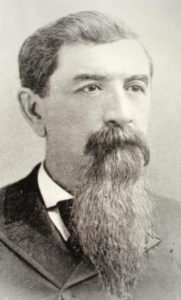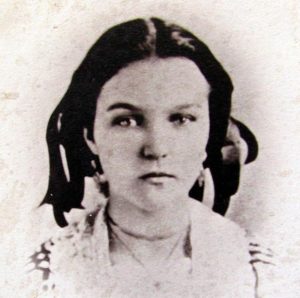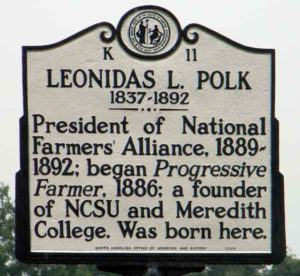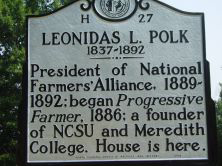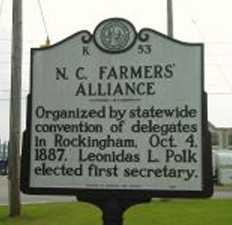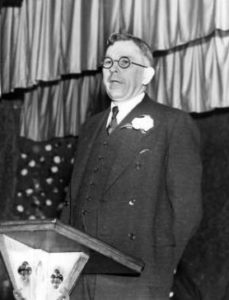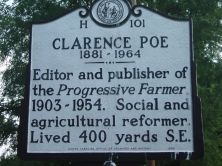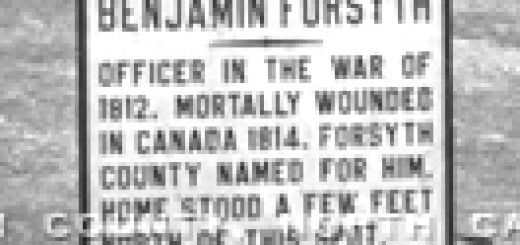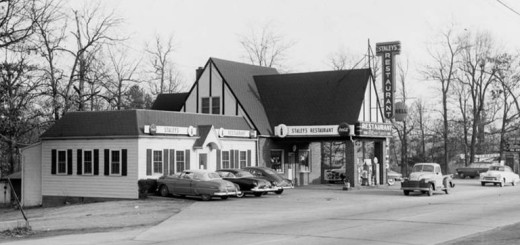If you lived in Winston 132 years ago, you might have already examined your very first issue of The Progressive Farmer. If the name of the publication sounds familiar it’s because this magazine is still being published today, although it began as a newspaper on February 10, 1886.
And the reason that you might have read the publication is because it was published in Winston by Leonidas Lafayette Polk. Mr. Polk’s name may not be familiar, although he had an illustrious career both before and after he began the newspaper.
Mr. Polk, photo shown above, was born in Anson County in 1832. He was a farmer with his brothers on their family farm in Anson County until he was 23 years old and was elected to the House of Commons. During the Civil War he served as a Colonel in the 81st North Carolina Militia. He was wounded at the Battle of Gettysburg. After the war he returned to his farm and became active in state politics. He was an advocate for farmers and he served in the North Carolina House of Representatives (1865-1866).
He founded the town of Polkton and launched a weekly newspaper, “The Ansonian.” He urged farmers to join the Grange Agriculture Movement and was appointed the first Commissioner of Agriculture in the newly created North Carolina State Department of Agriculture in 1877. Polk resigned the position in 1880 and began working as a reporter for the Raleigh News.
In 1886 he began a new publication in Winston, called The Progressive Farmer. Through this publication he pushed for agricultural improvement, farmer club organization, and the establishment of a separate agricultural college. In 1887, with Polk’s support, the North Carolina College of Agricultural and Mechanic Arts (later known as N. C. State University) was established.
In 1889 Polk introduced a resolution to the North Carolina Baptist State Convention that a Baptist Female University be established. The school was opened in 1899 and today it is called Meredith College.
Polk became involved with the National Farmers’ Alliance and Industrial Union, serving as president for several years. After the Democrat Party thwarted Polk’s agricultural reforms, he joined the Populist Party. He was a probable presidential candidate for the Populist Party in 1892, but he died suddenly from a hemorrhaging bladder.
Polk was married to Sarah Pamela “Sallie” Gaddy Polk (1840-1901), also a native of Anson County. Sarah (photo shown above) was also raised on a farm, and she graduated from Salem Female Academy. Mr. and Mrs. Polk had six daughters, and one son who died as an infant. One of the daughters, Carrie, married David Henry Browder. Mr. Browder was a native of Virginia but later lived and worked in Winston-Salem. He owned a book/stationery store and later worked in real estate. At some point, Mr. Browder worked as manager of The Progressive Farmer.
The North Carolina Highway Historical Marker Program honored Leonidas Polk with a marker that is located near his home in Polkton.
Another marker honors Polk and is located near his home in Raleigh.
And a third marker honors Polk as the first secretary of the N. C. Farmers’ Alliance and is located in Rockingham.
The Progressive Farmer grew from a newspaper to a magazine and flourished under the leadership of a young editor named Clarence Hamilton Poe (1881-1964). Clarence (photo shown above) became editor of The Progressive Farmer in 1899 and stayed in that position for 65 years. Some of his campaigns focused on the following: conservation of the soil by rotating crops, better health, better schools, better roads, beauty in homes and churches and along highways, and he promoted home and farm demonstration work and clubs. It was said of Clarence Poe, “He dreamed of a better life for rural people in his state and elsewhere, and he spent his own life in sharing that dream.”
A highway historical marker honoring Clarence Poe is located near his home in Raleigh.
The Progressive Farmer Company began a new publication in 1966 that built on the idea of beauty in Southern homes, and that magazine is named Southern Living. So the work that Polk began in Winston, then continued in Raleigh, and that Poe made his life’s work, is flourishing today through these two very popular magazines.
Stay tuned for the next historical post on March 15th.


